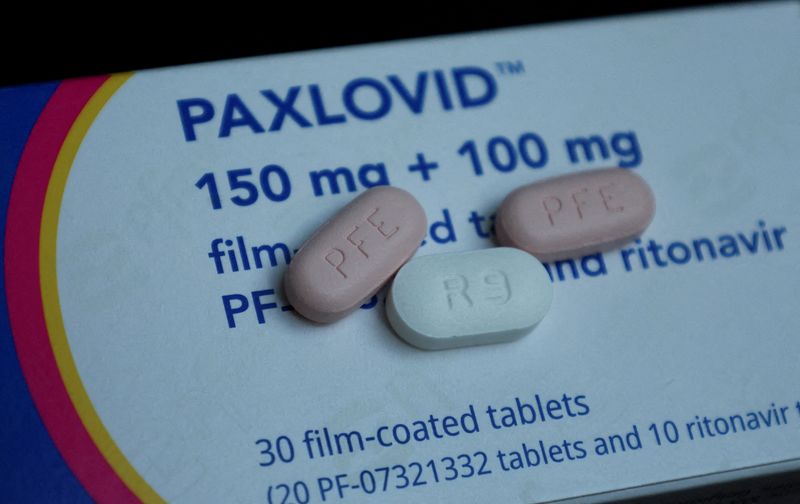By Ahmed Aboulenein
WASHINGTON (Reuters) - The U.S. government on May 11 will end the COVID-19 Public Health Emergency (PHE) that allowed millions of Americans to receive vaccines, tests, and treatments at no cost during the pandemic.
As the government hands off to commercial channels, including private insurance and government health plans, most Americans, even those who have health insurance, should expect some out-of-pocket costs for those products. Here is who will pay for what and when:
COVERAGE AND THE UNINSURED
Bearing the brunt of the PHE expiration will be the more than 27 million uninsured Americans, mostly adults under the age of 65, who will lose access to free COVID tests, vaccines and treatments.
The uninsured rate hit an all time low of 8% in early 2022, according to the latest available government data, but the U.S. Department of Health and Human Services estimates that about another 15 million people - one-third of them children - will lose their health coverage by next year.
Congress had required state Medicaid programs to keep people continuously enrolled during the emergency. That ends on March 31, with an unwinding period lasting through 2023 as outlined in the $1.66 trillion government spending "omnibus" bill President Joe Biden signed on Dec. 29.
Health officials say they are working on ways to help uninsured Americans with COVID-related costs but have so far provided no details.
As things stand, uninsured adults face paying full price for vaccines - which Pfizer/BioNTech SE and Moderna (NASDAQ:MRNA) plan to quadruple from around $30 to $120 - tests, and treatments, which can cost hundreds of dollars.
Limited vaccine and test supplies might be available at no or low cost through community health centers, and treatments will remain free while government supplies last.
VACCINES AND TESTS
Most Americans will still be able to get vaccines at no cost. People enrolled in government or state health insurance programs such as Medicare and Medicaid will continue to pay nothing, and those with private or employer-provided health plans should have no cost if they stay in-network.
Uninsured children will retain access to free vaccines through the Vaccines for Children Program, but could be charged administrative fees.
People on Medicare or private insurance will face out-of-pocket costs for both laboratory and at-home over-the-counter COVID tests as soon the emergency ends.
Those in the Medicaid or CHIP programs for poor adults and children will start shouldering some of the costs in 2024, after which lab tests remain at zero cost as long as they are ordered by a physician. The cost of other testing services including at-home tests will vary by state.
TREATMENT COST AND COVERAGE
The U.S. government has made COVID treatments like Pfizer (NYSE:PFE)'s oral antiviral Paxlovid available for free so far and will continue to do so while supplies last. After that, most people will be expected to pay some out-of-pocket costs.
There are no laws on how private insurance should cover COVID treatments.
This means some out-of-pocket costs for treatments insurers decide to cover and potentially full prices for those they do not. It also means people may be hit with higher insurance premiums if COVID treatment costs are substantial enough.
Medicare will continue to cover treatments, including those that receive Emergency Use Authorization (EUA) from the U.S. Food and Drug Administration, but beneficiaries will still face some costs.
Medicaid and CHIP beneficiaries will get FDA-approved treatments at zero cost until the second half of 2024, but it will be up to individual state Medicaid programs whether or not to cover those under an EUA rather than full formal approval.
